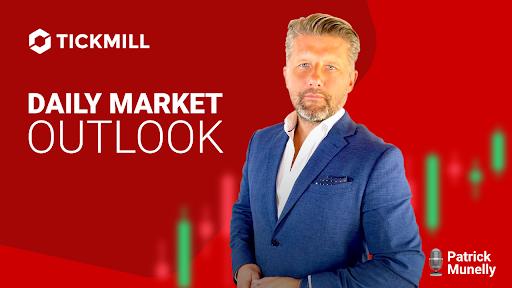The FTSE Finish Line - November 07 - 2024
Patrick Munnelly, Partner: Market Strategy, Tickmill Group
FTSE Failing To Find Its Feet Post US Elections As BoE Signal Gradual Easing
U.K. stocks initially traded higher on Thursday as higher commodity prices boosted resource stocks. Meanwhile, UK home prices rose for the fourth consecutive month, reaching a record high in October, but are expected to climb at a moderate pace as slower interest rate cuts by the Bank of England and new government policies may dampen demand, according to mortgage lender Halifax. Home prices grew 0.2% from September, as anticipated, following 0.3% gains in both August and September. The benchmark FTSE 100 index hovered around the minor positive to negative levels after closing marginally lower on Wednesday. Miners Anglo American, Antofagasta, and Glencore all rallied around 3%, while energy giant Shell added 1%.
After the BoE lowered 25bp on Thursday, markets focused on Governor Andrew Bailey's signal of a gradual approach to further easing, which might boost sterling. Sterling bulls lifted cable to a session high of 1.2996 after the BoE voted 8-1 to cut rates, improving hopes for fresh gains a day after the U.S. election appeared to cloud the pound's outlook. A potential problem for bulls is the Fed. Sterling's rate advantage may decrease if the U.S. central bank tempers rate-cut predictions due to political concerns.
In single stock stories Rolls-Royce shares decline 3.7%, among the top losers on the FTSE 100 index. The company maintains its outlook for at least 30% profit growth in fiscal year 2024, but notes the aerospace industry supply chain remains challenged. Rolls-Royce states its current trading is in line with expectations and its forecasts for fiscal year 2024 underlying operating profit between 2.1 billion and 2.3 billion pounds and free cash flow between 2.1 billion and 2.2 billion pounds remain unchanged. The company's shares are up approximately 84% year-to-date.
BT Group's shares declined up to 4.5% to a more than two-month low, among the top percentage losers on the FTSE 100 index. The company, Britain's largest broadband and mobile provider, has reduced its fiscal year 2025 revenue forecast from broadly flat to down 1-2%, reflecting weaker demand in the corporate and public sectors. However, the company maintains its annual earnings and cash flow forecast unchanged. Q2 revenue declined 3% to 5.09 billion pounds ($6.59 billion), falling short of analysts' estimates of 5.22 billion pounds. The stock is down 3.3%, trimming its year-to-date gains to around 11%.
Shares of engineering firm IMI have risen approximately 3%.The stock is among the top percentage gainers on the FTSE 100 index, which is up 0.1%. The company reported 1% organic revenue growth in Q3 despite a slowdown in its transport unit and ongoing challenges in life sciences, according to Jefferies. IMI reaffirmed its annual adjusted EPS outlook but flagged "additional foreign exchange headwinds".Including the session's gains, the stock is up 1.4% year-to-date.
Technical & Trade View
FTSE Bias: Bullish Above Bearish below 8225
Primary support 8000
Below 8000 opens 7855
Primary objective 8600
Daily VWAP Bullish
Weekly VWAP Bearish
Disclaimer: The material provided is for information purposes only and should not be considered as investment advice. The views, information, or opinions expressed in the text belong solely to the author, and not to the author’s employer, organization, committee or other group or individual or company.
Past performance is not indicative of future results.
High Risk Warning: CFDs are complex instruments and come with a high risk of losing money rapidly due to leverage. 73% and 72% of retail investor accounts lose money when trading CFDs with Tickmill UK Ltd and Tickmill Europe Ltd respectively. You should consider whether you understand how CFDs work and whether you can afford to take the high risk of losing your money.
Futures and Options: Trading futures and options on margin carries a high degree of risk and may result in losses exceeding your initial investment. These products are not suitable for all investors. Ensure you fully understand the risks and take appropriate care to manage your risk.
Patrick has been involved in the financial markets for well over a decade as a self-educated professional trader and money manager. Flitting between the roles of market commentator, analyst and mentor, Patrick has improved the technical skills and psychological stance of literally hundreds of traders – coaching them to become savvy market operators!
